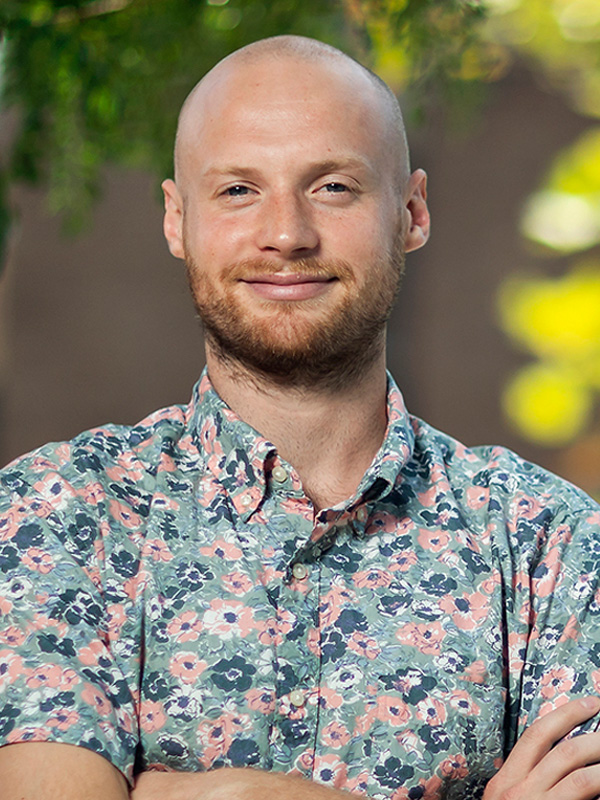Max Johnson Dugan’s research focuses on Islamic material and visual culture, embodiment, and emotions in contemporary North America. In his dissertation, he examines halal consumption in Philadelphia through ethnographic and digital humanistic methods to understand how tradition, racialization, diaspora, and the contingencies of urban life make Islamic materiality feel authentic. This project pushes against conceptions of Islamic tradition, and religion more generally, as fundamentally cognitive. Instead, he approaches Islamic tradition as a set of discourses, aesthetics, and institutions that are animated by feelings and enacted by bodies. This approach recovers and interrogates the local, non-elite production of Islamic tradition. His digital humanistic praxis shapes his commitment to making this research restorative, collaborative, and impactful for scholars and community stakeholders alike.
Max Johnson Dugan
Wolf Humanities Center Doctoral Fellow
2022—2023 Forum on Heritage
Max Johnson Dugan
Ph.D. Candidate, Religious Studies
Feeling Authentically Islamic: Halal Consumption, Islamic Tradition, and Material Religion in a Gentrifying Philadelphia
My project examines how heritage comes to feel authentically Islamic in a rapidly gentrifying Philadelphia. I draw concepts from material religion studies and affect theory to understand the embodied forces that give heritage its purchase. I focus on halalconsumer goods—the objects that transmit the rituals and discourses of Islamic tradition to consumers. Simultaneously precious and quotidian, this heritage circulates and contests the Islamic authenticity of various ethnic, diasporic, and classed materialcultures in Philadelphia. I use digital humanities and ethnography to analyze these contestations, especially the impact of racialization and gentrification on them. In addition to analyzing structural processes, I elucidate the innovative, local, and embodied ways that Muslims make heritage feel authentic for new generations and across communal boundaries.



